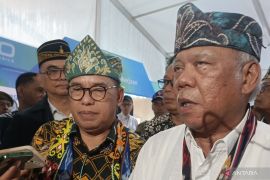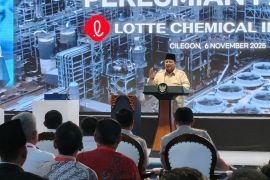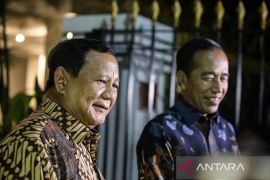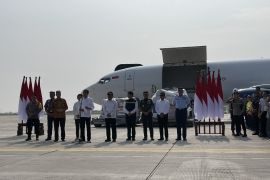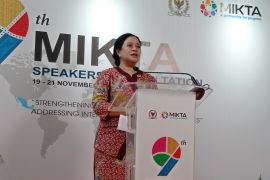Jokowi, after inaugurating KNKS, also opened the National Working Gathering of the Indonesian Muslim Economist Association (IAEI).
He hoped that with the inauguration of KNKS, the sharia banking market in the country would be able to grow even more rapidly.
Currently, based on existing data, the sharia banking market for 2016 only reached 5.3 percent of all assets of the national banking industry.
"The fact is that Indonesia, with its largest Muslim population in the world, should become the leader and the center of the worlds Islamic finance," he noted.
For example, Saudi Arabias sharia banking market reaches 51.1 percent, Malaysia reaches 23.8 percent, and the United Arab Emirates reaches 19.6 percent.
He argued that this was an opportunity that should be utilized.
"Do not let it be exploited by other countries," he stressed.
However, Indonesia actually has the largest number of sharia financial institutions in the world.
The presence of 34 sharia banks, 58 takaful operators (sharia insurance), 7 sharia venture capital, more than 5 thousand sharia microfinance institutions, and 23 million customers make the development opportunities of sharia banking in the country open wider.
"I am convinced that if the sharia finance industry is really driven, sharia finance can be one of the main solutions in financing the development in our country, be it the peoples economic development, infrastructure, roads, bridges, ports, power plants, and in financing poverty alleviation programs, as well as reducing social inequality," he remarked.
To support the governments efforts in alleviating poverty, the Head of State is of the view that religious social funds, such as zakat (tithe), can be fully utilized.
Moreover, the added 4.3 billion square meters of wakaf (endowment), the majority of which has not been utilized productively, can certainly be an alternative post for the economic empowerment of people, so that its benefit can be felt directly by the community in need. (*)
Editor: Heru Purwanto
Copyright © ANTARA 2017
